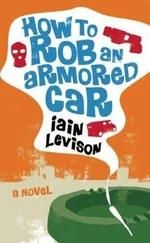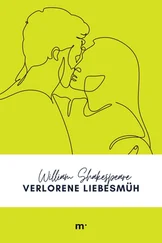Bragi Ólafsson - Pets
Здесь есть возможность читать онлайн «Bragi Ólafsson - Pets» весь текст электронной книги совершенно бесплатно (целиком полную версию без сокращений). В некоторых случаях можно слушать аудио, скачать через торрент в формате fb2 и присутствует краткое содержание. Год выпуска: 2008, Издательство: Open Letter, Жанр: Современная проза, на английском языке. Описание произведения, (предисловие) а так же отзывы посетителей доступны на портале библиотеки ЛибКат.
- Название:Pets
- Автор:
- Издательство:Open Letter
- Жанр:
- Год:2008
- ISBN:нет данных
- Рейтинг книги:5 / 5. Голосов: 1
-
Избранное:Добавить в избранное
- Отзывы:
-
Ваша оценка:
- 100
- 1
- 2
- 3
- 4
- 5
Pets: краткое содержание, описание и аннотация
Предлагаем к чтению аннотацию, описание, краткое содержание или предисловие (зависит от того, что написал сам автор книги «Pets»). Если вы не нашли необходимую информацию о книге — напишите в комментариях, мы постараемся отыскать её.
Pets — читать онлайн бесплатно полную книгу (весь текст) целиком
Ниже представлен текст книги, разбитый по страницам. Система сохранения места последней прочитанной страницы, позволяет с удобством читать онлайн бесплатно книгу «Pets», без необходимости каждый раз заново искать на чём Вы остановились. Поставьте закладку, и сможете в любой момент перейти на страницу, на которой закончили чтение.
Интервал:
Закладка:
“I’ll see you later, Rikki. Sorry. I’ll come along later.”
“OK?” Saebjorn says, clearly getting ready to shut the door.
“Nothing is OK,” Hinrik complains, and Saebjorn shuts the door in the middle of Hinrik saying that they didn’t come all the way here, to Grettisgata, just to be sent away. The drumming on the door begins again, and despite the fact that the door is locked and the music is on, I can hear angry voices outside; a whole band making a scene late at night in the freezing cold in the middle of a residential area. One of them shouts out swear words in English and another sings something that sounds like a football supporter song. That’s wonderful, I think to myself. Before they finally go off, they drum something on the kitchen or living room window, and for a moment I wish that they would break the window, so Saebjorn would take action and send Havard off with those troublemaking friends of his. Though he has said he is going to meet them afterwards, I have no real hope that it will be soon.
“Who were those gentlemen?” Armann asks, unable to conceal the fact that he is rather drunk.
“An old friend of mine,” Havard says, as if he doesn’t want to discuss it further.
“An extremely polite fellow,” Saebjorn says sarcastically.
Only two or three minutes have passed since Hinrik and his friends left when there is another knock on the door. That must be me, I say to myself; I can’t think of anyone else who could be on the way here.
“Here he comes!” Armann calls out, and I’m sure that all the others here are expecting it to be me. “Our friend on Grettisgata!”
As the front door is opened, the music is turned down and a glass, or something fragile, falls on the floor but doesn’t break.
“Armann!” Greta shouts.
“Good evening,” Havard says, and I hear Greta tell Armann that he can’t just empty the ashtray on the floor, it’s bad enough that he has dirtied the whole table.
“Yes, that’s possible, I came here at lunchtime,” Havard agrees with the person standing outside. “No, it is alright. They were just some guys, they won’t come back.”
I can’t hear who he is talking to, only the frail voice of an elderly man, but there is no doubt that it is my neighbor Tomas. He must have heard the noise Hinrik and his friends made and has come to see that everything is alright.
“Yes, you spoke to him today, didn’t you?” Havard continues. “Yes. No we are just waiting for him, he nipped out. You live next door, yes? I’ll tell him. Alright.”
Then he shuts the door.
“It’s good to have neighbors who keep an eye on you,” Havard says cheerfully when he comes back into the living room. “At least one isn’t all alone in the world.”
“Who was that?” Saebjorn asks.
“Some fellow in an anorak, one of Emil’s neighbors.”
“Good,” Armann says, and it seems that he is falling asleep, his voice sounds so tired. “That’s good.”
“Yes, don’t you think you would make a good neighbor for Emil?” Havard asks, and I hear a cork being removed from a bottle; it is either cognac or Greta’s red wine.
“Not in the state you are in,” Greta says with a laugh. “Armann, my friend, won’t you lie down? I think you are rather tired.”
Armann mumbles something weakly, Greta’s assumption is obviously correct, then he barks suddenly, and quite clearly, considering the state he is in:
“ Let this be our final will at the great noontide. ”
“Wait a minute?” Havard exclaims. “What was that? Our final will, what?”
“Our final will at the great noontide,” Armann repeats. Now his voice is more in keeping with his condition.
“But Armann, aren’t you just a little late with it? It’s nearly midnight. The time is ten, nearly eleven at night.”
“Noontide. . midnight.” He drawls as if these big words were full of lead. “Who was that outside? Who is. .” He seems to be completely collapsing.
“Relax, Armann,” Greta says encouragingly.
Jaime suggests that they help him into the bed, but Greta would rather he rested on the sofa. I can tell Saebjorn is disgusted that such an elderly man has drunk himself stupid, and I tell myself that my friend’s rationalism can sometimes be utterly unbearable.
“He didn’t need much,” is the only comment that Havard has to make about Armann.
“Noontide. . noon can’t come round unless there is midnight first.” Armann carries on.
Another antithesis from the mouth of the linguist. Noon, the warmest time of day, the opposite of midnight, the coldest time, when people search for warmth, when they want homes, alcohol, duvets, embraces, to enter one another.
“Evening comes for each one of us,” he carries on with equal difficulty. “Our last will. . we have high hopes at noon. . but all hope has died by midnight.”
“That is really profound, Armann!” Havard is amazed at what seems to be Armann’s grand finale.
“The glasses. .” he asks. Greta answers by saying “there, there,” and tells him to lay his head down, everything is alright, he should just rest.
“Have my glasses been found?” he repeats in a weak voice. Havard reminds him that he came here to fetch them; they are lying on the table.
“Please help yourselves,” Armann groans. He sounds as if he is talking in his sleep. “Help yourselves, my good friends.”
8
I think of what Armann said to me on the plane: that he often felt he was in some kind of limbo. Reflecting on it, I feel it is strange that he should talk about limbo being his favorite word; that word has always made me feel rather uncomfortable. Apart from its cheerful sound, which is reminiscent of words such as bimbo and mambo or something of the sort, its meaning isn’t exactly positive, and the first image that arises in my mind is of little children playing some innocent game. Then I hear heavy music and all at once the children are inside some dark limbo, from which they never escape. Armann is too old to take part in this strange game, but when I picture him on the sofa, I think it is probable that he is in some other kind of limbo, perhaps the one he tried to explain to me on the plane without me understanding what he meant.
When Greta asks if I have a dustpan and brush, Saebjorn answers that she is bound to find something like that in the big cupboard in the kitchen. She goes into the kitchen, opens the cupboard, and walks back into the living room, whistling a tune I recognize.
“Wasn’t that somebody knocking?”
I hadn’t heard anything.
“No doubt this neighbor again,” Havard suggests.
“I’m quite sure someone was knocking,” Greta says again, but she doesn’t seem willing to go to the door. Besides, it should be the job of one of the men. I hear someone stand up and the front door opens, but nothing happens to show that Greta was right.
“Have a look outside,” Saebjorn calls out from the living room, and then I hear someone dial a number on his cell phone.
“I don’t see anyone,” Jaime answers. But it sounds like he is going outside as Saebjorn suggested; the door is still open and I can feel the cold come in, as if it’s crawling along the floor and creeping into every corner of the flat.
Saebjorn has started to talk to someone on the phone. He says he is at my place. He and Jaime had come here to fetch some CDs I had bought for them, but he’ll be there quite soon. I imagine he is talking to his girlfriend, Klara.
I feel sorry for Jaime when he comes back in and closes the front door. He is shivering and tells them through his chattering teeth that he didn’t see anyone outside. Saebjorn switches off his phone and suggests to Jaime that they get going.
Читать дальшеИнтервал:
Закладка:
Похожие книги на «Pets»
Представляем Вашему вниманию похожие книги на «Pets» списком для выбора. Мы отобрали схожую по названию и смыслу литературу в надежде предоставить читателям больше вариантов отыскать новые, интересные, ещё непрочитанные произведения.
Обсуждение, отзывы о книге «Pets» и просто собственные мнения читателей. Оставьте ваши комментарии, напишите, что Вы думаете о произведении, его смысле или главных героях. Укажите что конкретно понравилось, а что нет, и почему Вы так считаете.











